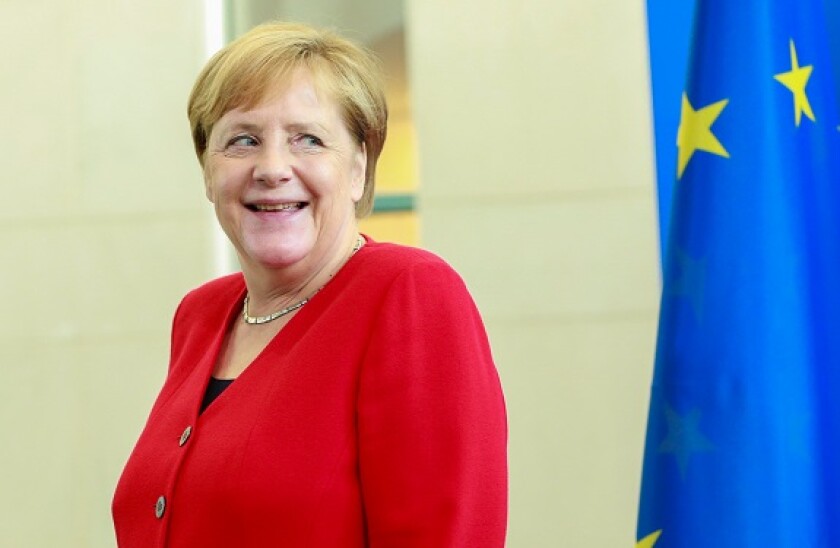An important election takes place in Germany this weekend to decide the leader of the Christian Democratic Union party. The victor will put himself in a strong position to become the candidate to become the country's chancellor in September's national election, and the CDU remains top of the polls.
That makes the vote an important one for the future of the EU. Jeremy Cliffe tackles what is at stake in the New Statesman.
"Between 1998 and 2005 a 'red-green' coalition of the Social Democrats (SPD) and Greens modernised the recently reunified country: liberalising the old federal republic’s conservative social policies; paving the way for a multi-ethnic conception of German identity; deploying troops into combat abroad for the first time since 1945; prodding industries towards a greener future; and introducing welfare cuts purporting to adapt the economy to globalisation," he writes.
"The fundamental choice made by Merkel’s four governments from 2005 has been to continue the country on that trajectory, rather than to deviate from it."
Cliffe says that Merkel has lost right-wing votes to the extremist Alternative für Deutschland (AfD) but gained more moderate voters.
Vying to replace her are Friedrich Merz, Armin Laschet and Norbert Röttgen. Merz is the more conservative candidate, Laschet would be expected to tack closest to Merkel's path, and Röttgen fits the mould of a centrist moderniser.
Also hovering in the wings are Jens Spahn and Markus Söder, who may yet usurp the weekend's winner as the CDU/CSU candidate for chancellor.
"Both are younger and newer faces in federal politics, have criticised Merkel from the right in the past, and have recast themselves as more centrist figures since," writes Cliffe.
A more Conservative German chancellor could be less keen on financial integration in the EU: a potential red flag therefore for markets.
On the other side of the Atlantic, Joe Biden has revealed a $1.9tr stimulus proposal, as the BBC reports.
It involves direct payments of $1,400 for all Americans. Supplemental unemployment benefits would rise to $400 a week from $300, and be extended until September.
Biden is also targeting 100m coronavirus vaccine jabs in 100 days. Up to now, around 11m doses have been administered.
And expectations of fiscal stimulus appear to have led to a sell-off in 10 year US Treasury bonds. The spread between two year and 10 year Treasuries is now hovering at around 1%.
"The rapid central bank action and unprecedented fiscal stimulus in response to the pandemic-induced recession were clearly required to avoid a catastrophic economic depression and an acutely damaging default rate, but they have also left investors with little alternative to being risk-on," writes Gary Kirk, partner at TwentyFour Asset Management.
Kirk reckons that this cycle will probably be remembered a being very quick: from late cycle to full-blown recession to recovery in months. Over the next year, he thinks that investors will become more risk-adverse.
"We shall be watching with interest as USTs will likely become a viable part of a fixed income portfolio again sooner than we anticipated."

